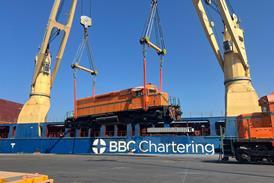Global road, air and sea organisations and unions have called on the UN General Assembly to restore freedom of movement to transport workers and end a “global humanitarian and supply chain crisis”.
The plea was put forward in an open letter from the International Road Transport Union (IRU), International Air Transport Association (IATA), the International Chamber of Shipping (ICS) and the International Transport Workers’ Federation (ITF).
According to the organisations, transport workers have all continued to keep global trade flowing throughout the pandemic, but it has taken a human toll. At the peak of the crew change crisis 400,000 seafarers were unable to leave their ships, some working for as long as 18 months over their initial contracts.
Flights have been restricted and aviation workers have faced the inconsistency of border, travel, restrictions, and vaccine requirements.
Additional, systemic and unpredictable controls at road borders has meant truck drivers have been forced to wait, sometimes in their thousands and for weeks in unsanitary situations without proper facilities, before being able to complete their journeys and return home.
Global supply chains are beginning to buckle as two years’ worth of strain on transport workers take their toll.
Transport heads warned that states have failed to listen or take the decisive and coordinated action, and called on heads of government to end the blame-shifting within and between governments and resolve this crisis before the looming holiday season again increases freight demand, further pressuring supply chains.
Specifically, the letter calls for transport workers to be given priority to receive WHO recognised vaccines; the creation of a standardised process for demonstrating health credentials; and for the WHO and ILO to raise these issues at the UN General Assembly and with national governments.
All transport sectors are also seeing a shortage of workers and expect more to leave as a result of the poor treatment millions have faced during the pandemic, putting the supply chain under greater threat.
Unless heads of government enact change, the humanitarian and supply chain crisis will remain indefinitely, causing more hardship.
Stephen Cotton, ITF secretary general, said: “Transport workers have kept the world’s supply chains and people moving despite the neglect of world leaders. They have worked through border closures, an inability to return home, a lack of access to healthcare, restrictive quarantine requirements and the complete uncertainty borne from government ineptitude. Frankly, they’ve had enough. The time has come for heads of government to respond to these workers’ needs, if not they will be responsible for the collapse of supply chains, and the unnecessary deaths and suffering of workers and citizens caught in the crisis. That blood and that chaos will be on their hands.”
















